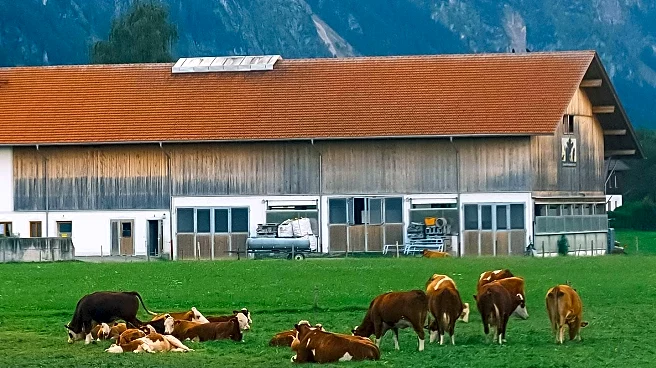What is the story about?
What's Happening?
Several farm stays across Europe are offering unique experiences that combine local food and picturesque countryside settings. These farm stays, located in countries such as France, Ireland, Portugal, and Sweden, provide guests with opportunities to enjoy locally sourced meals, participate in agricultural activities, and explore the surrounding landscapes. Each location offers distinct features, such as private pools, cooking classes, and wine-tasting tours, enhancing the appeal for travelers seeking authentic rural experiences. The accommodations range from restored farm buildings to boutique hotels, each emphasizing sustainability and local culture.
Why It's Important?
The trend of farm stays reflects a growing interest in sustainable tourism and local food culture. By promoting local produce and traditional farming practices, these establishments contribute to the preservation of regional culinary traditions and support local economies. Travelers benefit from immersive experiences that connect them with the land and its produce, fostering a deeper appreciation for sustainable living. This movement also highlights the importance of responsible tourism, encouraging visitors to engage with communities and environments in meaningful ways.
What's Next?
As the demand for sustainable and authentic travel experiences continues to rise, more farm stays may emerge, offering diverse activities and accommodations. This could lead to increased collaboration between local farmers and hospitality providers, further integrating tourism with agricultural practices. Additionally, the focus on sustainability may inspire other sectors within the travel industry to adopt similar practices, promoting environmental consciousness and cultural preservation.
Beyond the Headlines
The rise of farm stays also presents ethical considerations regarding the impact of tourism on rural communities. While these initiatives can boost local economies, they must be managed carefully to avoid over-tourism and ensure that the benefits are equitably distributed among residents. Furthermore, the emphasis on local food and culture raises questions about the authenticity of experiences offered and the potential commodification of cultural practices.

















